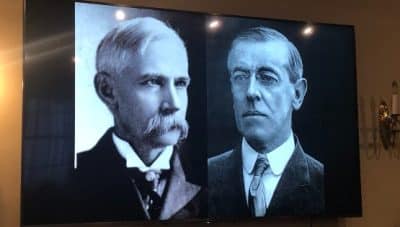
The American Lung Association’s 20th annual “State of Tobacco Control” report gives Virginia failing grades on passing policies to reduce and prevent tobacco use, including e-cigarettes.
The “State of Tobacco Control” report evaluates state and federal policymakers on actions taken to eliminate tobacco use, the nation’s leading cause of preventable death. The report recommends proven-effective tobacco control laws and policies to save lives. The 2022 “State of Tobacco Control” reveals that the country has made substantial progress in advancing tobacco control policies over the past 20 years, including comprehensive smokefree laws in more states, increased tobacco taxes across the nation and more Americans with access to treatments to help them quit smoking through state Medicaid programs.
Here in Virginia in the last 20 years, lawmakers have made strides to reduce tobacco use, like raising the tobacco sales age from 18 to 21, however, there is much more work to be done. The adult smoking rate is still 13.6 percent, and the high school tobacco use rate is 22.5 percent.
“While we have seen some progress in Virginia, tobacco use remains our leading cause of preventable death and disease, taking an estimated 10,310 lives each year,” said Aleks Casper, director of advocacy at the American Lung Association in Virginia. “And our progress on tobacco control policy has not been equal. We continue to see the unequal burden of tobacco use and exposure to secondhand smoke in communities experiencing health disparities.”
Virginia’s grades
“State of Tobacco Control” 2022 grades states and Virginia in five areas that have been proven to prevent and reduce tobacco use and save lives. Virginia received the following grades:
- Funding for State Tobacco Prevention Programs – Grade F
- Strength of Smokefree Workplace Laws – Grade F
- Level of State Tobacco Taxes – Grade F
- Coverage and Access to Services to Quit Tobacco – Grade D
- Ending the Sale of All Flavored Tobacco Products – Grade F
This year’s report noted the need for Virginia policymakers to focus on licensing all tobacco product retailers, increasing the cigarette tax and create parity between cigarette and other tobacco products taxes; and increase funding for tobacco control programs.
Breakdown
Tobacco retailer licensing
Virginia still does not require tobacco and e-cigarette retailers to obtain a tobacco retail license. According to data, strong retail licensing requirements have been found to reduce youth e-cigarette and tobacco use. A retail licensing plan should be comprehensive and include e-cigarette retailers, annual license renewal, graduated penalties for violations with suspension and revocation provisions and required retailer education.
“A comprehensive tobacco retail license program is needed in Virginia in order for lawmakers to effectively reinforce, educate, monitor or penalize illegal sales of tobacco products,” said Casper. “A comprehensive plan would include the maintenance of an inclusive Commonwealth tobacco retailer list, retailer tobacco education and compliance training; and monitoring through required retailer compliance checks.”
Increase tobacco tax
One of the most effective ways to reduce tobacco use, not only among low-income individuals but also for youth, is to significantly increase the tax on all tobacco products, including e-cigarettes. Multiple studies have shown that every 10% increase in the price of cigarettes reduces consumption by about 4% among adults and about 7 percent among youth.
“To protect kids from a lifetime of nicotine addiction, the Lung Association in Virginia encourages the Commonwealth to increase cigarette taxes by a minimum of a $1 per pack and equalize the tax on other tobacco products, including e-cigarettes and cigars with its cigarette tax,” said Casper.
Increase funding for tobacco prevention and quit smoking programs
An investment in prevention is especially important given the ongoing youth vaping epidemic.
“Despite receiving $395.1 million from tobacco settlement payments and tobacco taxes, Virginia only funds tobacco control efforts at 16.4 percent of the level recommended by the Centers for Disease Control and Prevention (CDC). The Lung Association believes the funds should be used to support the health of our communities, and to prevent tobacco use and help people quit, and not switch to e-cigarettes. These programs are also critical for helping to end tobacco-related health disparities,” said Casper.










